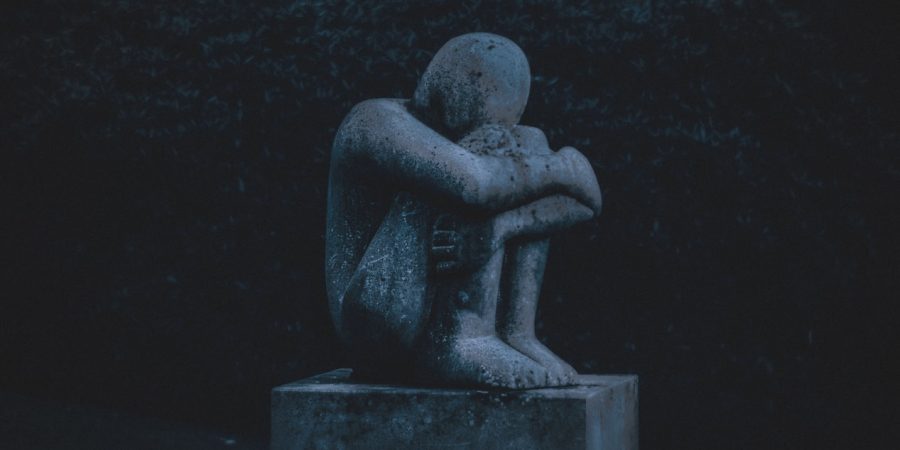Bereavement is always a difficult time. But for some people the grieving process becomes extended. This type of grief affects their ability to move on following the loss of a loved one. It’s called complicated or complex grief. And it requires a mental health professional to help.
When you’ve lost a loved one it’s natural to grieve. With that grief comes a range of other emotions that might include common issues like depression or anxiety.
But there are differences between normal grief and complex grief. A big indicator is length of time.
Roughly speaking, grief should improve after around three months, otherwise it could be a sign of complex grief. If after about six months that grief has stayed the same or got worse, they could be experiencing complicated/complex grief.
And it’s not to suggest that after six months grieving people should be over the loss of a loved one. It’s more about a mourners’ ability to move forward and cope with the world without their loved one. There should be progress in coming to terms with the loss.
“… sometimes acute grief can gain a foothold and become a chronic debilitating condition called complicated grief. Moreover, the stress caused by bereavement, like other stressors, can increase the likelihood of onset or worsening of other physical or mental disorders. Hence, some bereaved people need to be diagnosed and treated.”
Dr Katherine Shear, Founder of the centre for complicated grief. Professor of Psychiatry at Columbia School of Social Work and Columbia College of Physicians and Surgeons.
What is Complex Grief? The Natural Mourning Process
Getting over the loss of a loved one can take years. It’s a process of small steps but at the end of it you should feel a deep connection with the person you’ve lost. You should also be able to imagine a new life and feel hopeful about a future without them.
When a person experiences complex grief they constantly pore over memories of the death, they worry about the future and avoid thinking about the death and their loss. It’s a cliché, but they are on an intense emotional rollercoaster ride.
This constant negative self-reflection, or rumination, is a form of avoidance which stops the mind’s ability to heal. Avoiding reality in this way can cause tiredness, weaken your immune system and increases the potential for depression and complex grief.
What is Complex Grief? Symptoms
Many of the emotional and physical symptoms associated with complex grief are similar to other disorders. Symptoms of complicated grief include:
- Obsession with the deceased, possible deep attachment to mementos (or hatred of mementos)
- Deep, ongoing sadness and denial of the feelings when asked about it
- Not wanting to leave the house, or engage in any form of social interaction
- Lack of attention to personal care
- Problems handling day-to-day affairs, for example those at work, at school or parenting
- Not participating in the usual hobbies and activities
- Disrupted sleeping patterns
- Anger, irritability and self-destructive behaviour
- Talk of suicidal thoughts or even attempts
(If you are ever concerned about a person’s immediate safety you should call the emergency services immediately.)
Extra Risk Factors in Complex Grief
Some people are more prone to experiencing complicated or complex grief because of existing health problems or the nature of the death. For example:
- A person being highly dependent on the deceased, for example the death of a spouse
- When a death is sudden, traumatic or premature
- If the person has to deal with more than one death in a short space of time
- When a person sees the death
- If the person has a history of mental illness or has a history of substance abuse
What is Complex Grief? It’s Not Depression
Both complex grief and depression cause the sufferer to be sad and both affect a person’s day-to-day existence.
They aren’t the same.
It’s quite normal to experience the two together but there are fundamental differences. Depression can be a consequence of grief but is not a part of the process.
Major depression is where a person sees themselves and the world as flawed and worthless. It’s a mental disorder, where a sense of lasting hopelessness can in extreme circumstances cause people to have thoughts of suicide. There is no light at the end of the tunnel, only the tunnel.
Grief is a reflection on a losing a loved one, a person they were closely connected to and whom they miss dearly. They might be in the tunnel and they can’t find the way out. But they know there is one.
It’s easy to get complex grief and depression mixed up.
But grief is closer to Post Traumatic Stress Disorder, PTSD, than it is to depression. Both grief and PTSD are a result of an external circumstance (although the response to a physical threat is also different to the loss of a loved one).
What Does Grief do to the Body?
To the brain physical pain and emotional pain are the same thing. As grief aggravates inflammation existing health problems can become worse. And news ones can develop. When stress from grief becomes major, extra adrenaline and higher blood pressure can contribute to chronic medical conditions.
The immune system becomes vulnerable, the risk of blood clots increases and it can cause heart disease because of the way it physically changes the heart muscle. Intensely grieving people can have similar symptoms of chest pains as a person who is having a heart attack.
A person suffering from grief is also likely to experience nausea, headaches and an increase or decrease in their appetite.
Helping a Person Who’s Grieving
A person who is suffering from complicated or complex grief needs professional help which might take the form of grief counselling, cognitive behavioural therapy, complex grief therapy and in some circumstances, medication.
Naturally a grieving person needs the support of other family members and friends, but it can be tricky to know what to say to someone in the depths of grief.
The honest answer is to say nothing.
It’s normal to want to be part of a social support network for a grieving friend, but don’t feel pressure to make the person feel better. Listen to them, without trying to fix the pain. Give them the space they need.
There are other things to consider too:
The changes in things like financial situation and a person who’s grieving understanding where they ‘fit in to the world’ can be intense making daily living extremely difficult. So, helping them with chores is just as important, especially if they have children.
Bereavement Support at S. Stibbards & Sons Ltd
As part of our service we offer you and your family complimentary bereavement support.
Just contact the family support team or speak to your funeral arranger, who will place a referral on your behalf.
S Stibbards & Sons Bereavement Support Team:
1032 London Road, Leigh-on-Sea, Essex, SS9 3ND
01702 479315 or [email protected]







